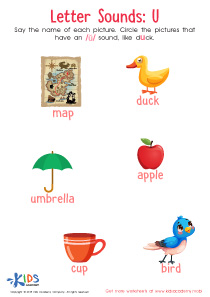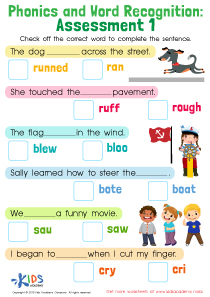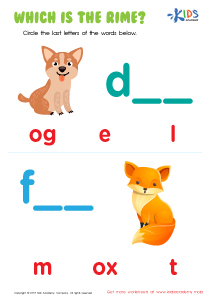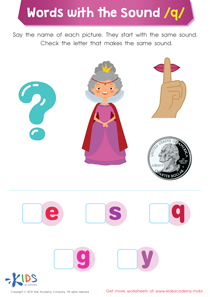Easy Beginning Sounds Worksheets for Ages 6-7
3 filtered results
-
From - To
Discover our "Easy Beginning Sounds Worksheets for Ages 6-7" tailored to young learners. These engaging activities focus on enhancing phonemic awareness by helping children identify and practice initial sounds in words. Our vibrant, kid-friendly worksheets make learning fun and interactive, ensuring students stay motivated. Perfect for classroom use or at-home practice, these worksheets support early reading skills essential for literacy development. Foster a love for reading in your child with our carefully crafted beginning sounds activities designed to build confidence and set a strong foundation in phonics. Dive into a world of learning and fun with these easy-to-use worksheets!
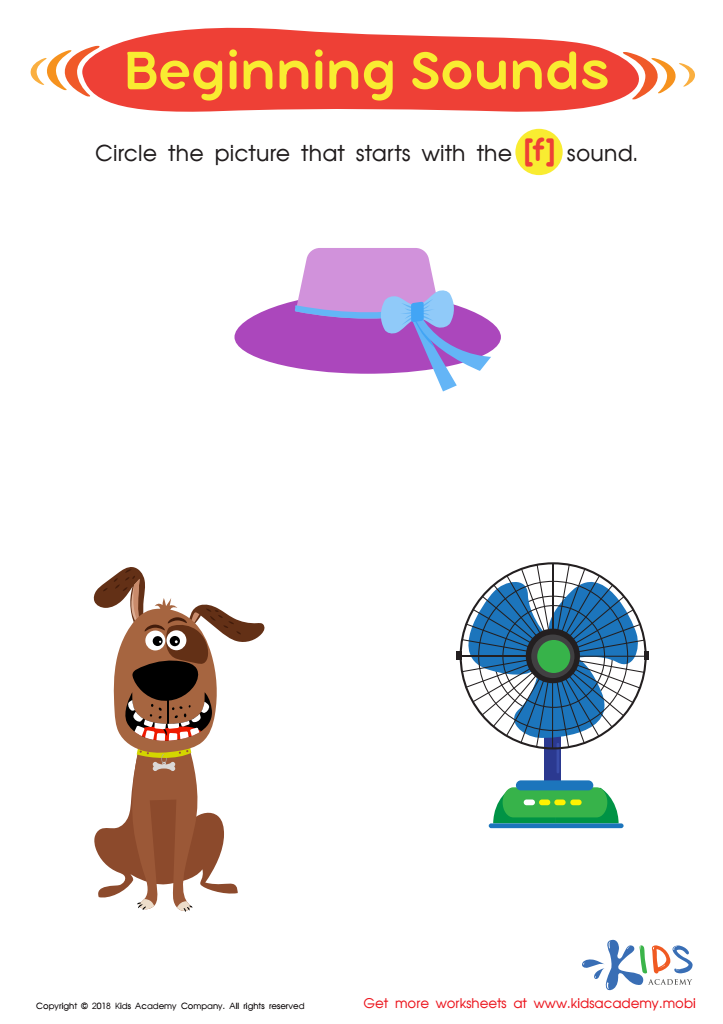

Beginning Sounds Assessment Printable
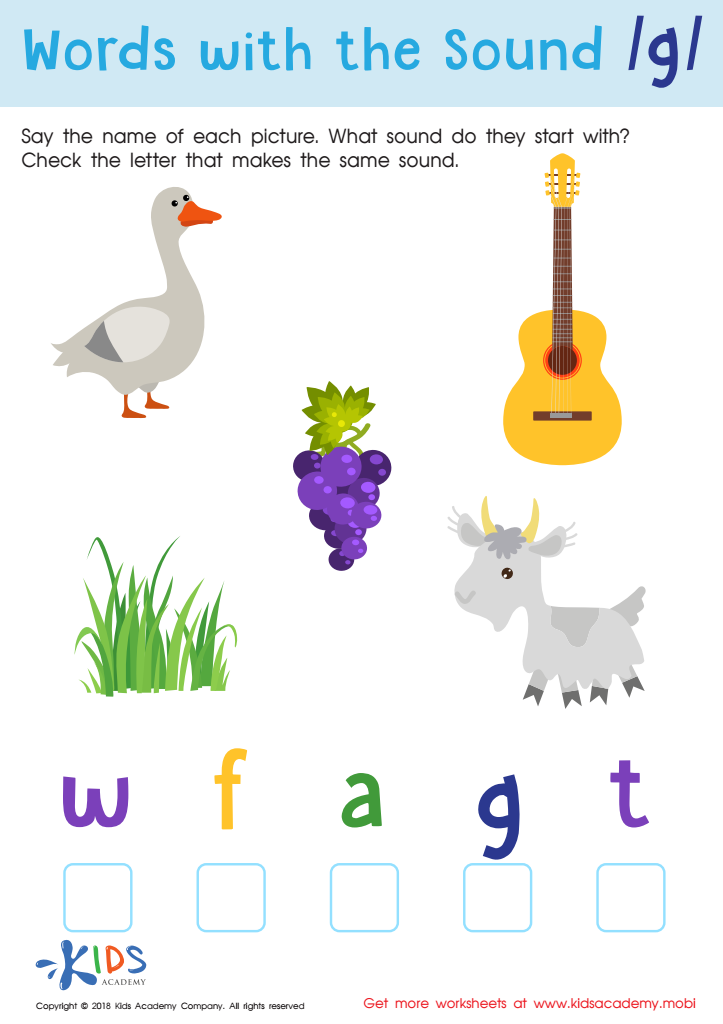

Words with sound g Reading Worksheet
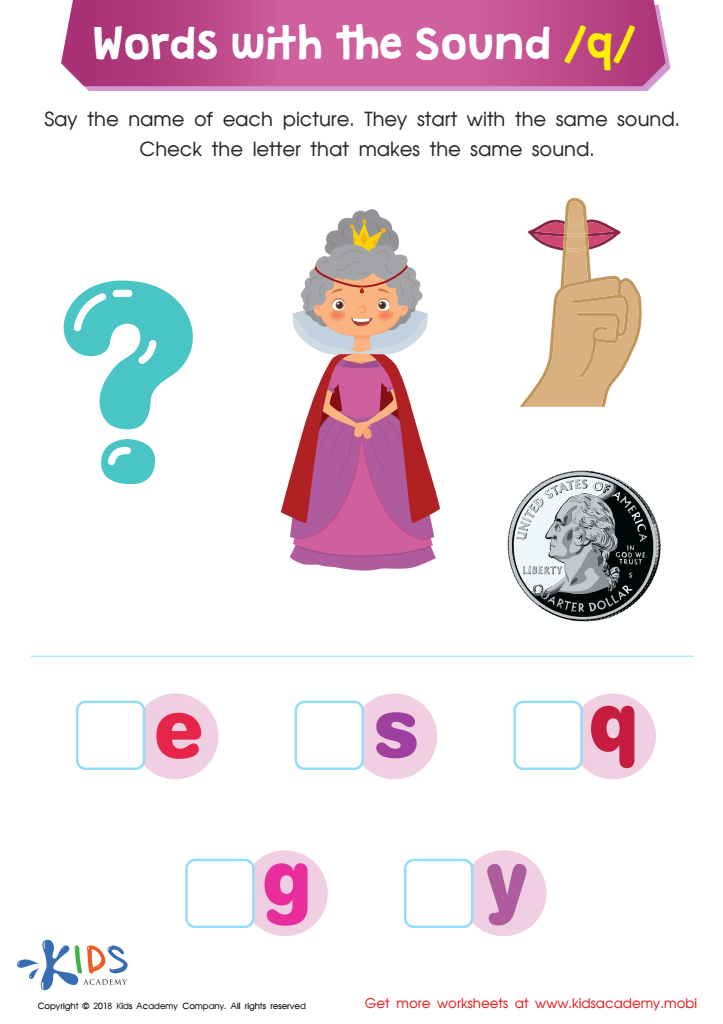

Words with Sound Q Reading Worksheet
Understanding beginning sounds is crucial for six-to-seven-year-old children as this skills serves as a foundation for reading and spelling. When children learn to identify beginning sounds in words, they develop phonemic awareness, which is the ability to hear, identify, and manipulate individual sounds in spoken words. This skill is a major predictor of future reading success.
Parents and teachers should emphasize beginning sounds because it helps children make connections between letters and sounds, crucial for decoding words during reading. For example, recognizing that "cat" starts with the "c" sound helps children blend sounds to read words like "cat," "cap," or "car."
Moreover, beginning sounds foster better oral language skills. As children gain proficiency, they become more aware of sound patterns, enriching their vocabulary. Simultaneously, their spelling skills improve as they start to learn spelling conventions and patterns through sound recognition.
Strengthening these initial skills also enhances children’s confidence in their literacy journey. Success in small, manageable tasks like identifying beginning sounds motivates them to tackle more complex reading and writing activities.
Therefore, dedicating time to teaching and reinforcing beginning sounds not only supports literacy development but also lays the groundwork for academic success in numerous other subjects.
 Assign to My Students
Assign to My Students












